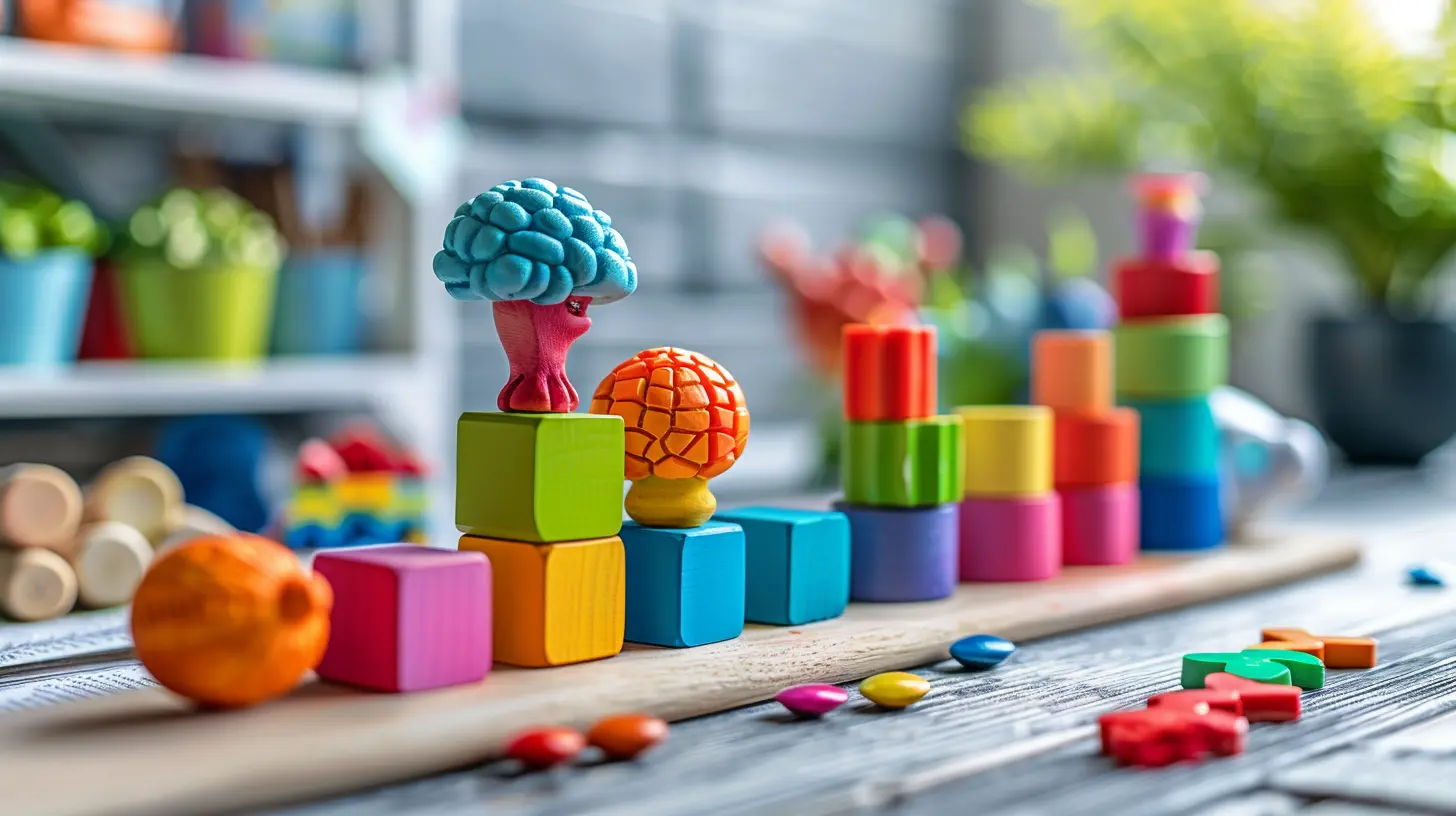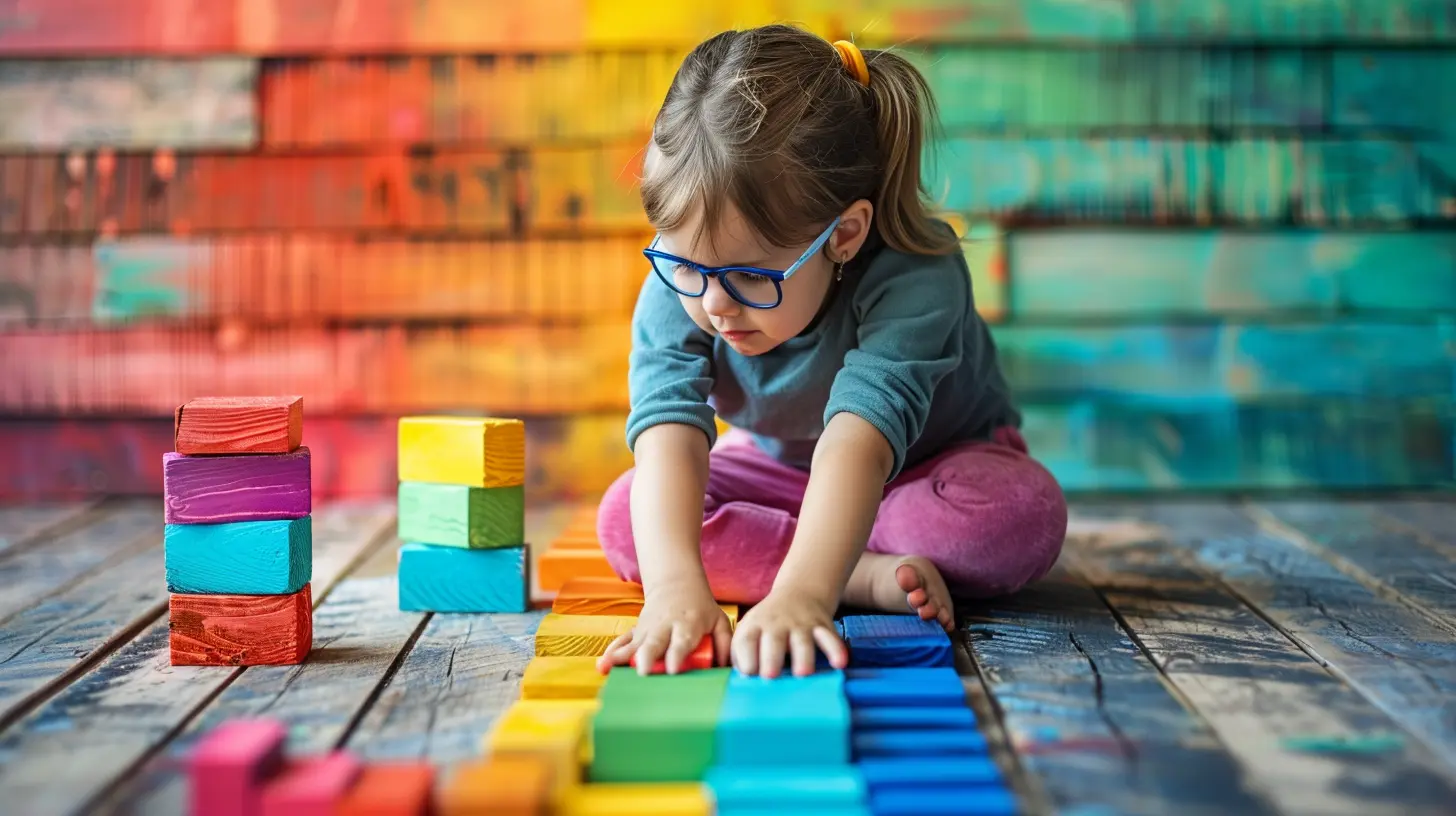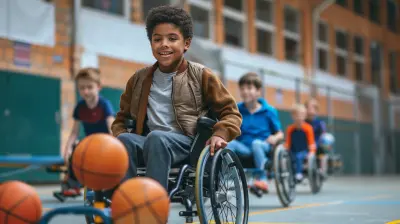Understanding the Stages of Cognitive Development
29 October 2025
Have you ever wondered how a child's mind grows and evolves over time? From the moment they're born, kids go through an incredible transformation in the way they think, reason, and understand the world. It’s like watching a tiny seed blossom into a giant tree—each stage has its own milestones, challenges, and breakthroughs.
In psychology, cognitive development refers to how a person’s ability to think, reason, and problem-solve changes as they grow. One of the most influential theories on this topic comes from Jean Piaget, a Swiss psychologist who spent his life studying how children develop intellectually. His theory divides cognitive development into four key stages—each bringing new skills and ways of thinking.
So, let’s dive deep into these stages and understand how the brain evolves from infancy to adulthood. Ready? Let’s go! 
The Four Stages of Cognitive Development
According to Piaget, every child progresses through four distinct stages of cognitive growth. Each stage builds upon the last, shaping how they interact with and make sense of the world around them.1. The Sensorimotor Stage (Birth to 2 Years)
This is where it all begins! Babies are born with limited reflexes, but they quickly start learning through their senses and movements. Have you ever seen a baby grab something and put it straight into their mouth? That’s their way of exploring!Key Characteristics:
- Object Permanence: Before around 8 months, if you hide a toy from a baby, they’ll act like it no longer exists. But as they grow, they start to understand that objects continue to exist even when out of sight.- Cause and Effect: Babies slowly realize that their actions have consequences—like shaking a rattle to make noise.
- Learning Through Touch and Movement: Everything is an experiment for them! They touch, grab, bang, and taste objects to understand how things work.
This stage is all about discovery. Babies are like tiny scientists, testing the world around them with every move they make.
2. The Preoperational Stage (2 to 7 Years)
Welcome to the stage of wild imagination and pretend play! If you’ve ever watched a child talk to their stuffed animals or believe in imaginary friends, you’ve seen this stage in action.Key Characteristics:
- Egocentrism: Kids at this age struggle to see things from someone else’s perspective. If they love chocolate cake, they might assume everyone else does too!- Symbolic Thinking: They start using words, images, and objects to represent things. A simple stick can become a magic wand in their eyes.
- Lack of Logical Thinking: They might believe the moon follows them at night or that their teddy bear has feelings.
This stage is like living in a dream world where anything is possible. Their imagination knows no bounds, and everything seems magical!
3. The Concrete Operational Stage (7 to 11 Years)
Now, things start getting a bit more logical. Kids in this stage begin to understand concepts like math, cause-and-effect relationships, and the idea that things aren’t always as they appear. They no longer believe that a taller glass has more water than a shorter, wider one just because it looks bigger.Key Characteristics:
- Conservation: They grasp the idea that quantity remains the same even if its shape changes.- Logical Thinking: While they still struggle with abstract ideas, they can now think logically about concrete events and solve simple problems.
- Understanding Others’ Perspectives: They start seeing that other people have thoughts and feelings different from their own.
This is the phase where learning becomes more structured. Their reasoning skills improve, and they begin questioning how things work, which makes them eager learners!
4. The Formal Operational Stage (12 Years and Up)
This is the final stage, where thinking becomes more complex and abstract. Teenagers and adults in this stage can think beyond the present and consider hypothetical situations. Ever had a deep conversation with a teenager about the meaning of life? That’s formal operational thinking in action!Key Characteristics:
- Abstract Thinking: They can think about ideas that don’t have physical forms, such as love, justice, or freedom.- Hypothetical and Deductive Reasoning: They start asking "what if" questions and thinking about future possibilities.
- Problem-Solving: They develop the ability to systematically solve problems rather than using trial and error.
At this point, a person’s cognitive abilities are almost fully developed. They can understand complex issues, engage in moral reasoning, and plan for the future. 
Why Understanding Cognitive Development is Important
Now that we’ve explored these stages, you might wonder—why does this matter? Well, understanding how a child’s brain develops helps parents, teachers, and caregivers nurture their growth effectively.1. Helps in Effective Teaching
Knowing these stages allows teachers to create lessons suited for a child’s cognitive abilities. You wouldn’t expect a toddler to grasp algebra, right? But you can encourage learning in ways that match their developmental level.2. Supports Better Parenting
When you understand your child’s thought process, you can communicate and guide them more effectively. Instead of getting frustrated when your 3-year-old won’t share, recognizing that they are still in the egocentric phase can help you teach them empathy gradually.3. Encourages Healthy Development
Every child develops at their own pace, but knowing these stages helps identify if a child might need extra support. Early intervention for learning difficulties can make a world of difference.
Nurturing Cognitive Growth at Every Stage
Want to help a child grow intellectually? Here are some simple ways to encourage development at every stage:For Infants and Toddlers (Sensorimotor Stage)
- Talk to them often, even if they don’t respond yet.- Provide toys with different textures, shapes, and sounds.
- Play peek-a-boo to help them understand object permanence.
For Preschoolers (Preoperational Stage)
- Encourage pretend play—let them be a doctor, astronaut, or chef!- Read stories and ask them to predict what happens next.
- Introduce simple puzzles and sorting games.
For School-Age Kids (Concrete Operational Stage)
- Play board games that involve strategy and logic.- Involve them in real-life problem-solving, like measuring ingredients for a recipe.
- Ask them to explain their thinking when solving a problem.
For Teens (Formal Operational Stage)
- Discuss hypothetical situations and ethical dilemmas.- Encourage them to set long-term goals and plan for the future.
- Expose them to different viewpoints and let them debate ideas.
Every child is unique, but fostering the right opportunities at each stage can maximize their potential! 
Final Thoughts
Cognitive development is an incredible journey filled with curiosity, discovery, and growth. From the first time a baby recognizes a familiar face to the moment a teenager debates world issues, each stage plays a crucial role in shaping who they become.Understanding these stages isn’t just about psychology—it’s about helping young minds flourish. Whether you’re a parent, teacher, or just someone fascinated by how the mind works, recognizing these stages allows us to support and nurture children in the best way possible.
After all, every great thinker, scientist, and artist started as a child learning how to make sense of the world. And who knows? The child you're supporting today might be the next Einstein or Shakespeare!
all images in this post were generated using AI tools
Category:
Child DevelopmentAuthor:

Olivia Lewis
Discussion
rate this article
1 comments
Julianne Thomas
This article effectively distills the complexities of cognitive development stages, highlighting key theorists and their contributions. By simplifying intricate concepts, it enhances educators' understanding and practical application in fostering students' cognitive growth, which is essential for tailoring effective teaching strategies.
November 2, 2025 at 4:24 AM

Olivia Lewis
Thank you for your thoughtful feedback! I'm glad you found the article helpful in clarifying these important concepts for educators.


